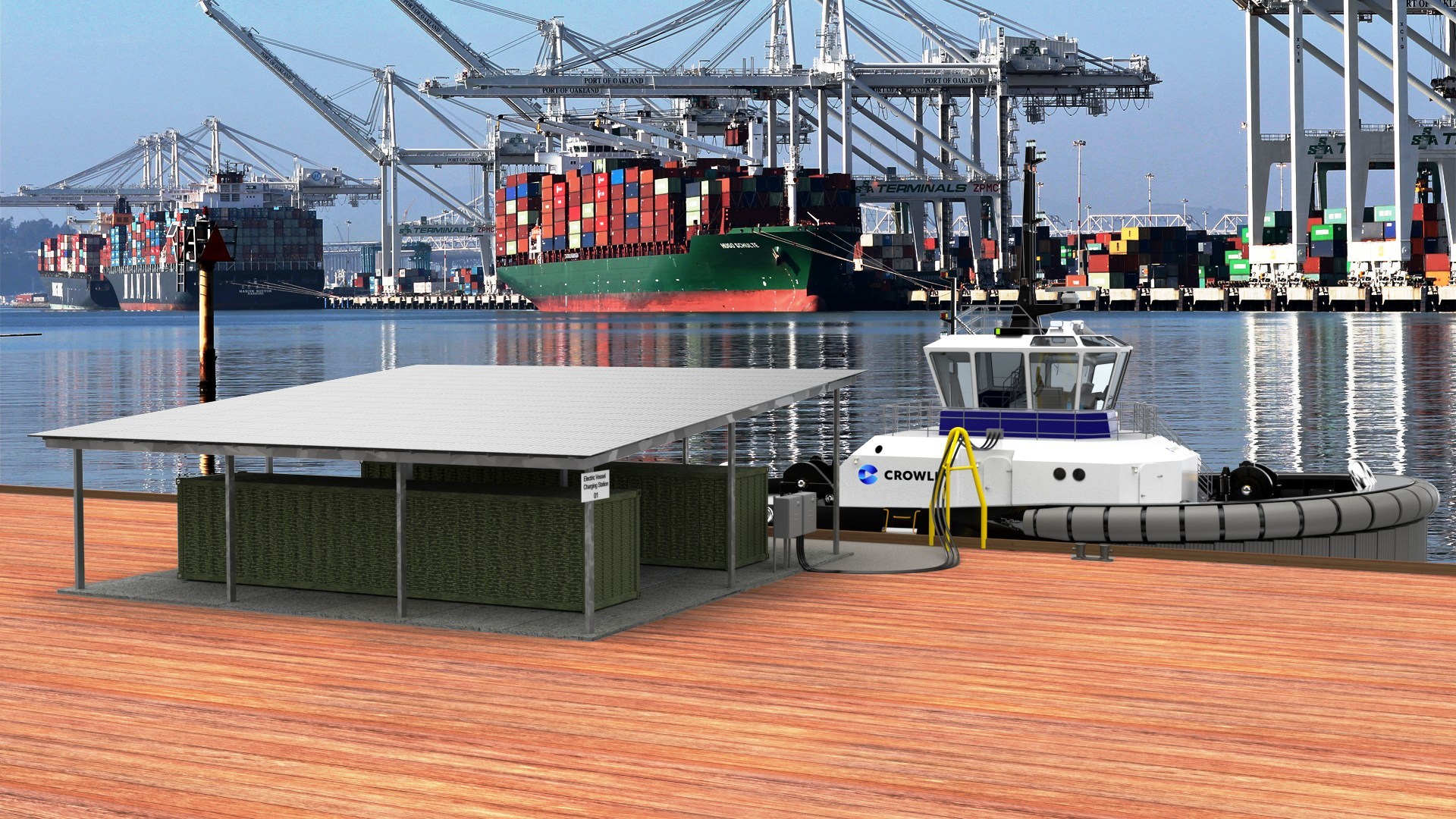Continuing to demonstrate their commitment to decarbonization of the maritime sector, Crowley and Shell Trading (US) Company (Shell) have entered into a memorandum of understanding (MOU) with the aim of supporting alternative energy solutions for the future of shoreside and terminal operations. The MOU follows an ongoing joint project that was previously initiated between the companies to provide lower-carbon fuel solutions by designing, building and operating the nation's largest LNG bunker barge on the U.S. East Coast.

Subject to future agreements, Shell will look to support Crowley's development of lower-emissions solutions for a shoreside charging station at the Port of San Diego, where Crowley's eWolf, the first all-electric U.S. ship assist tug, will begin service in 2023.
The MOU aligns with Crowley's commitment to reach net-zero emissions by 2050 in collaboration with partners, promoting industry-wide accountability and action toward a common goal which benefits both people and planet.
"We are pleased to expand our scope of work with Shell, a trusted partner whose commitments carry global impact, as we continue on our sustainability journey," said Paul Manzi, vice president, Crowley Shipping. "Together, we look forward to making significant strides to reduce global emissions, innovating our vessels and equipment and progressing towards net-zero while delivering value and performance for customers."
"We recognize that the world is in the midst of an energy transition, and we're working hard to play our part," said Maarten Poort, general manager of Shell Shipping & Maritime Americas. "We are proud of the relationship we have with Crowley and are excited about the opportunities we have to support them on their decarbonization journey."
Under this MOU, Shell and Crowley are continuing to look more broadly at how they can jointly develop sustainable solutions across the U.S. maritime sector, possibly including lower-emissions vessels and technology at ports across the West, Gulf and East Coast regions and electrification and net-zero solutions at terminals.